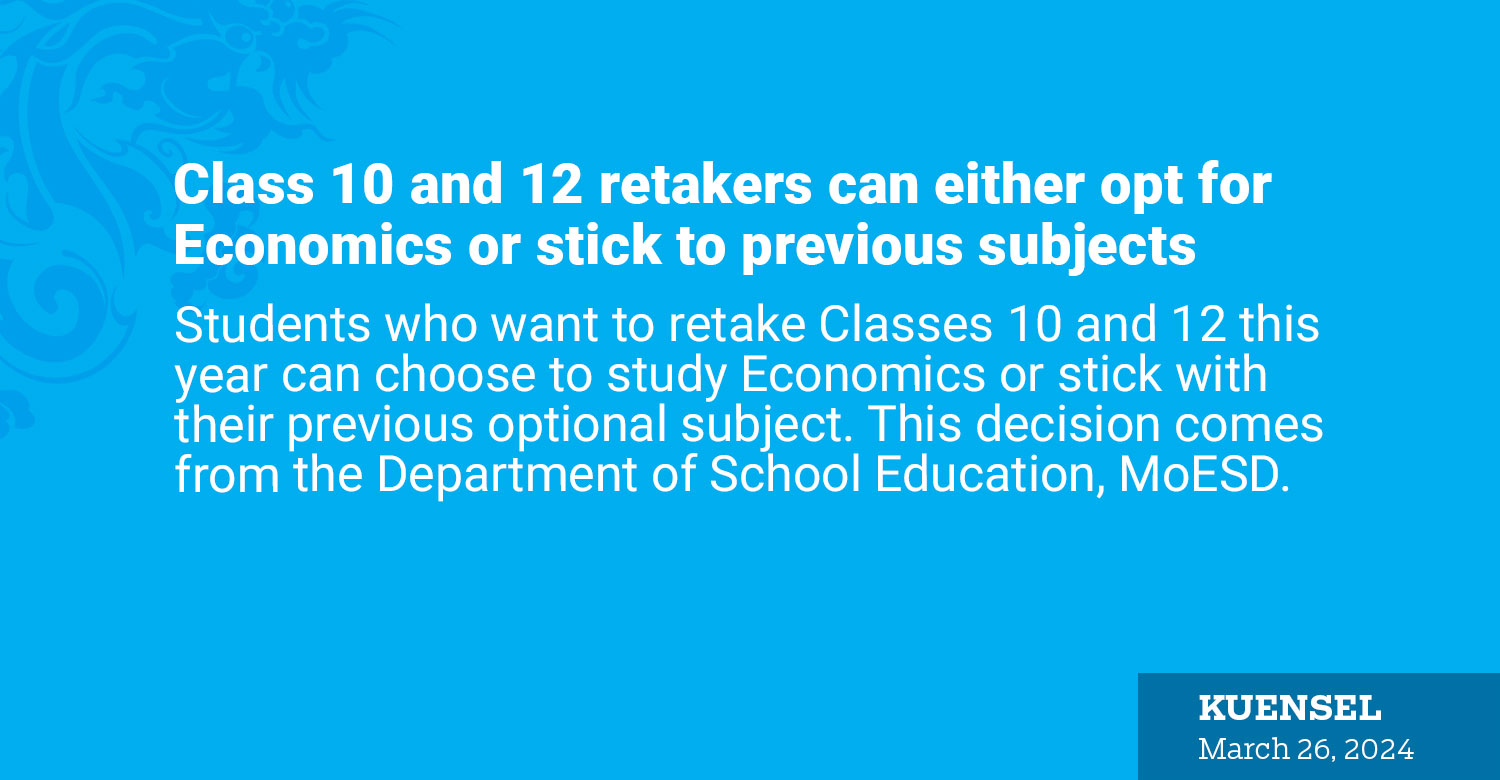KP Sharma
Students who want to retake Classes 10 and 12 this year can choose to study Economics or stick with their previous optional subject. This decision comes from the Department of School Education, MoESD.
This decision has been made in response to rumours suggesting that students repeating classes might not get the chance to do so because their previously studied subjects might not be available in the curriculum.
Economics, which was an optional subject until 2022, became mandatory for students in Classes IX to XII starting from the 2023 academic year as part of educational reforms.
The ministry further explained that these changes aim to give children a fundamental grasp of Economics, which is crucial for navigating the challenges of the 21st century.
On the other side, the ministry also chose to discontinue certain optional subjects in a similar way.
Subjects like Agriculture for Food Security (AgFS), Environmental Science (EVS), and Media Studies were discontinued from the 2023 academic session.
The alterations in the educational policy, particularly the requirement to study Economics and the removal of certain optional subjects, have sparked concerns, particularly among repeaters who could face challenges because of these changes.
For some repeaters, having Economics as a compulsory subject might feel like an extra load. Learning Economics for the first time, especially later in their schooling, can be tough and may demand extra effort to catch up with classmates who have been studying it consistently.
According to a notification sent by the Department of School Education to the Chief Dzongkhag Education Officers and Thromde Education Officers on March 13, schools have been given the flexibility to adapt their curriculum regarding subject changes.
In response, schools have the option to replace other optional subjects with Economics to help with the transition.
The notification stated that school management will offer additional support to facilitate this transition, including bridging courses and extra assistance for students.
As a backup plan, schools are encouraged to keep previously chosen subjects, depending on the availability of teachers to handle the workload effectively.
The Department of School Education clarified that these adjustments are part of broader educational reforms aimed at enhancing academic rigor and guaranteeing a solid foundational education for students.
The Department added that the alternatives have been announced in collaboration with the Bhutan Council for School Examinations and Assessment (BCSEA) to ensure a smooth transition for the students.
“We believe it is essential to provide adequate support and flexibility during this transition period,” the notification added.
However, some teachers expressed discontentment over the notification, citing concerns about the challenges facing both teachers and students.
“This year, we have to make separate lesson plans, and the entire planning has to be done differently as we don’t have optional subjects,” said a teacher in Thimphu.
The teacher added that teachers previously assigned to optional subjects have already been allocated other subjects, and schools have to rework subject distribution accordingly.
An Economics teacher in Samtse said that it would be challenging for both teachers and students to study Economics, especially considering the critical juncture of their education and the limited time.
“We must understand that Economics is a technical subject, and there are challenges associated with teaching it to students who have had no prior exposure to it in lower classes,” he said.


